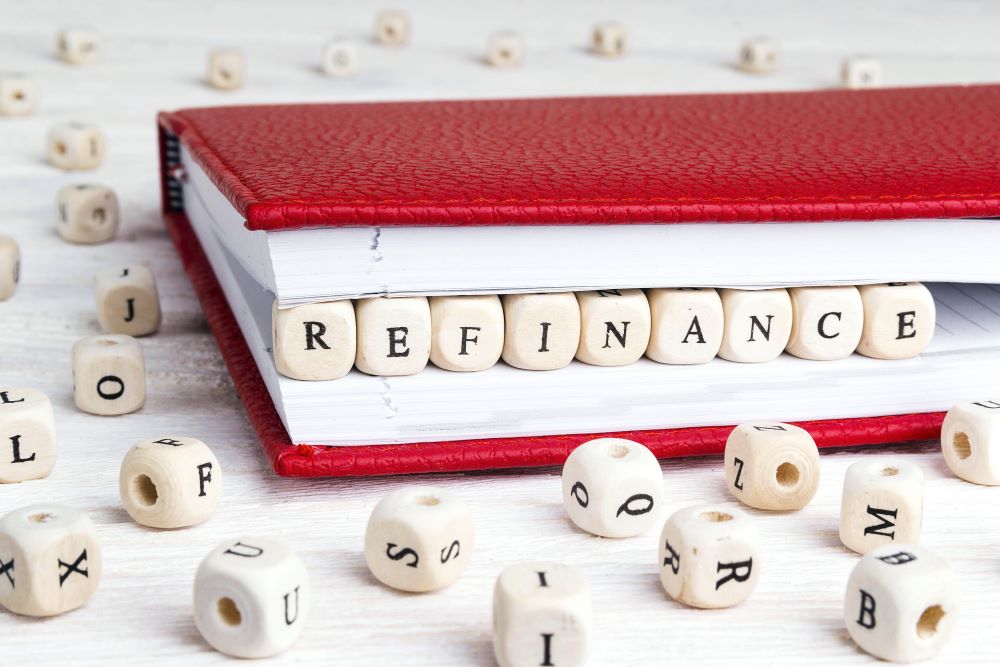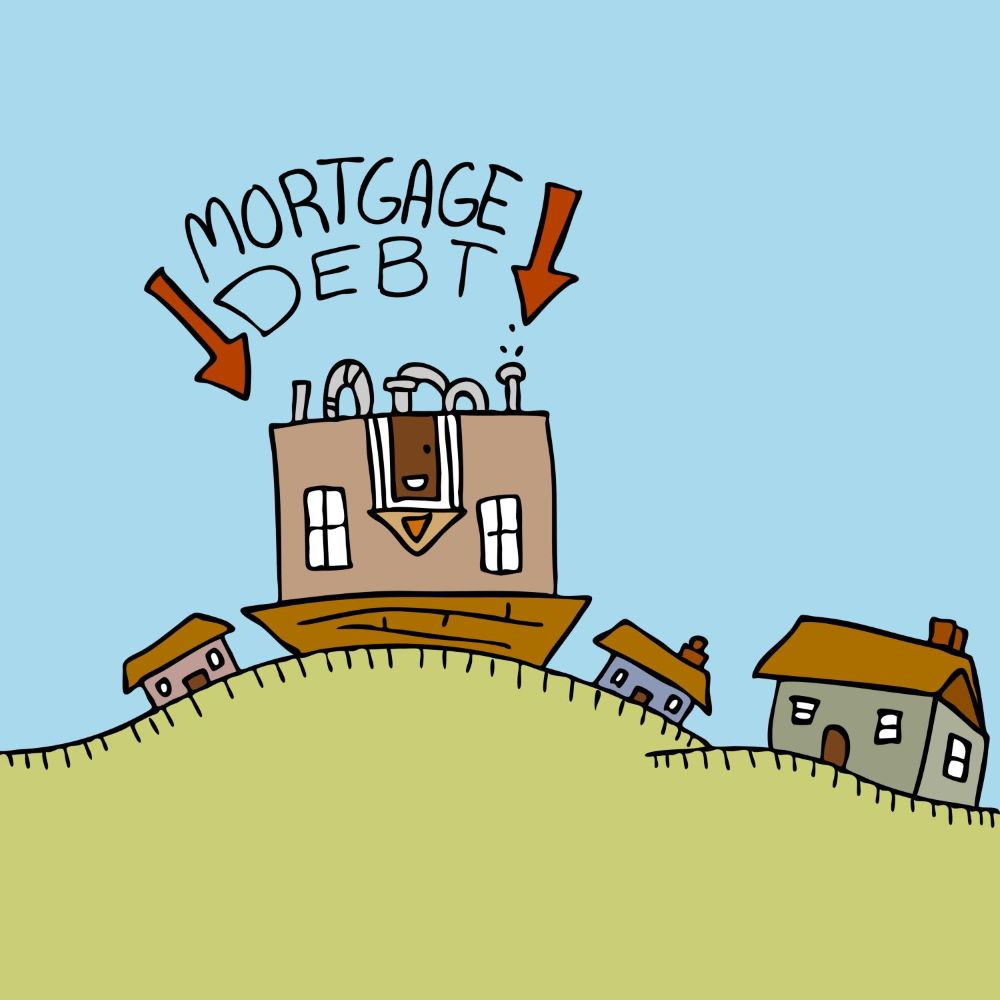Refinance Applications Continue To Climb Despite Added Adverse Market Refinance Fee
15
2021Adverse Market Refinance Fee
In December 2020, the Federal Housing Finance Agency implemented the Adverse Market Refinance Fee. This fee applies to any Freddie Mac and Fannie Mae-owned refinances loans, along with any loan over $125,000. Forbes estimates 70% of all loans would qualify for the additional fee if refinanced. The charge is 0.5% of the total loan, which equates to about $1,000 on a $200,000 loan. So far, there has not been a decrease in the number of homeowners applying to refinance. In fact, applications to refinance a home continue to surge. What exactly is this Adverse Market Refinance Fee? Why is it being enforced? How will this affect refinancing your home? Continue reading to find out.
What To Expect
- The basics on refinancing a home
- A record number of refinancing applications in 2020
- New 0.5% Adverse Market Refinancing Fee not slowing rush to refinance
- Hidden costs of refinancing
- Dangers vs. benefits of refinancing
Mortgage Refinancing 101
So what is refinancing exactly? Well, a cash-out refinance will issue you a new loan to pay off your current mortgage and allow you to cash out a portion of your equity. Equity is the difference between your current market value and mortgage balance. When you refinance, your new loan will carry a new interest rate and loan term. Lenders require that you retain a certain percentage of equity, usually 10 to 20 percent. It's important to note that you may have to pay private mortgage insurance if you don't retain at least 20% equity. Private mortgage insurance protects the lender if you default on your loan, and the premiums will be included in your monthly mortgage payment. You will not pay taxes on the money you cash out because it is considered a loan, but you will need to pay closing costs.
Another option is to take out a home equity line of credit, known as a HELOC. This route usually involves taking out a second mortgage. You will be issued a line of credit that you can withdraw from during your draw period, which is typically 10 years. Once your draw period ends, you will start repaying over a 20 year period. While cash-out refinancing offers fixed and adjustable interest rates, a HELOC interest rate will vary according to an index, usually the US prime rate.
Largest Refinancing Boom In History
Millions of Americans are facing financial hardship due to the Covid-19 pandemic. With so many losing income, many look to refinance their home in order to lower monthly payments or cash out their equity to cover expenses. There are some benefits to refinancing with interest rates so low, but it's important to look at the big picture before making such an important financial decision. With the upcoming market correction, many homeowners that refinanced could find themselves underwater. On the other hand, homeowners that opt to sell their home while prices are high could find themselves in a good position to purchase when housing prices decline.
With record low-interest rates, 2020 has seen the largest refinancing boom in history. According to a nationwide survey conducted by Bank Rate, 17 percent of mortgage borrowers refinanced this year. Of those surveyed that didn't refinance, 16 percent couldn't qualify due to low credit scores or unemployment, and 23 percent couldn't afford the closing costs. Sadly, many homeowners that opted for refinancing are likely to face negative consequences in the future. These trends have continued into 2021. However, a slight increase in rates has begun. Experts suggest a healthy-paced increase in mortgage rates over the next few weeks.
Adverse Market Refinance Fee
The Adverse Market Refinance Fee is a charge to lenders from the Federal Housing Finance Agency, FHFA, on all refinances sold to Freddie Mac and Fannie Mae. Throughout the COVID-19 pandemic, measures were taken to protect people from losing housing on the federal level. This included mortgage forbearance and eviction moratoriums. The Adverse Market Refinance Fee came about to make up for the billions of dollars lenders lost due to the catastrophic economic turmoil in the wake of the COVID-19 pandemic. To cover the cost, lenders collect the fee at closing, or many banks are increasing the interest rate. This is about an 8th of a point tacked onto interest rates. 
Refinance Fees Explained
- Inspection/Appraisal
- Lenders want to know that your property value is accurate and that the home is in good condition. Therefore you will have to pay for an inspection, looking for structural elements of the home, plus you will have to pay for an appraisal to calculate the current value. The inspection can run anywhere from $200-$600 and the appraisal, $300-$500.
- Land Survey
- Lenders will want a current land survey, which can cost anywhere from $300-$800. This ensures boundary lines, legal descriptions, and if there have been any improvements or add ons to the home or land.
- Credit Report
- Lenders need to know if there has been any change to your credit score. Running a credit report generally costs $30-$50.
- Lender Origination/Underwriting Fees
- The Lender will charge a fee to process the loan application. Generally, this is .5% to 1% of the total loan amount.
- Title
- When refinancing on a loan, lenders will want a title search done. This can cost anywhere from $400 to $900.
- Tax Service Fees
- The lender collects this to be sure that the property taxes are paid on time.
- Attorney Fees
- Many states require an attorney to file the paperwork. This cost varies greatly but can start as low as $500 and go up from there.
- Government Recording
- Local and state government agencies charge a fee for recording documents, the deed, and mortgage paperwork. This cost depends on what state and county you are in.
Dangers Vs. Benefits Of Mortgage Refinancing
Refinancing can be tempting during a time of such economic uncertainty, but you'll want to consider the long-term consequences. According to the Mortgage Banker's Association, 6.73% of all mortgages on one to four-unit properties were delinquent during the 4th quarter of 2020. This number is substantially higher in some areas of the country. Florida's delinquency rate has tended to be a bit higher due to the market's heavy dependence on the tourism and leisure industries. Home values have continued to climb because housing inventory has remained low. However, the moratorium on foreclosures is set to expire on March 31st. Once banks foreclose on delinquent mortgages, inventory will increase, resulting in declining home prices.

If you refinance, you could find yourself upside down on your loan when home values decline. It took ten years in many areas for housing prices to recover from the 2008 recession. This could limit your options to sell in the future. If you're forced to short sell your property, your credit could take a hit of up to 160 points and will impact your credit for years to come. Refinancing only makes sense if your current interest rate on your mortgage is high, you have enough equity to cash out and still retain substantial equity in your home, you have job security, and you plan on staying in your home for at least ten years. Of course, you'll need cash on hand for closing costs and decent credit to qualify.
Selling your home while prices are high might be a better financial decision. According to Realtor.com, national housing inventory declined 39.2 percent, and the average sales price increased 12.7 percent over the last year. The seller's market is strong right now, with many sellers receiving multiple offers resulting in bidding wars on their homes. Everyone wants to sell at the top of the market, but we don't usually know that we've hit the top of the market until prices start to decline. 2020 provides a unique opportunity to look to leading economic indicators and predict the top of the market with greater certainty. If you're in the position to sell at the top of the market and rent or stay with family until prices decline, you could really come out ahead.
Adverse Market Refinance Fee Wrap Up
In conclusion, we went over what mortgage refinancing is. We talked about the current situation with record numbers of refinancing applications being placed. We also discussed the new 0.5% Adverse Market Refinance Fee and additional closing costs. We then went through some of the benefits and dangers of refinancing. You are now in a position to intelligently navigate the world of refinancing a home.


